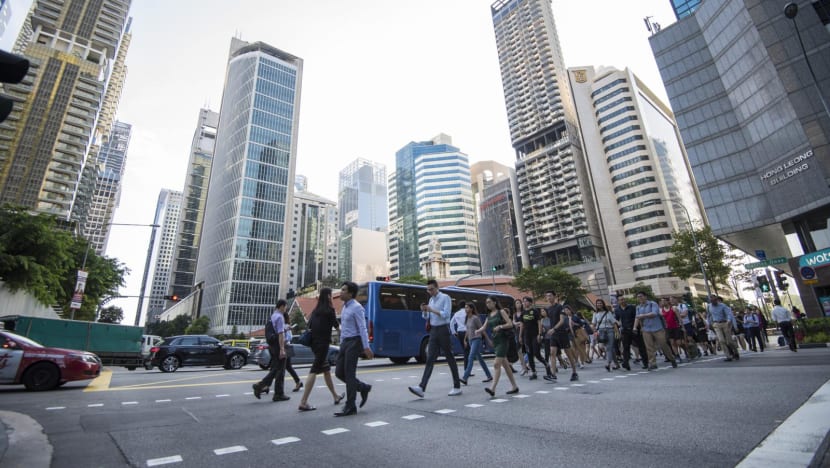April 2025 Tax Filing: Are You Missing Out on SG Budget 2025 Benefits?
Are you ready for the April 2025 tax filing season? If not, you might miss out on valuable benefits from the Singapore Budget 2025, announced on February 18, 2025.
This budget includes tax rebates and incentives designed to support individuals and businesses. .Let's explore how to maximise these opportunities for your tax filing in April 2025.
What Companies and Individuals Need to Pay Attention To: Impacts of New Tax Changes
The Singapore Budget 2025 introduces various tax policy changes that affect companies and individuals. Below is a breakdown of key changes, their implications, and whether they present benefits or disadvantages.
For Companies
| Incentive | Details | Impact | Attention |
|---|---|---|---|
| 50% Corporate Income Tax (CIT) Rebate for YA 2025 + Cash Grant | 50% rebate on tax payable, min SGD 2,000 cash grant, capped at SGD 40,000 for active companies with one local employee in 2024 | Benefits smaller companies; larger firms may find the cap limiting. | Maintain local employment records to ensure eligibility. |
| Extension of Double Tax Deduction for Internationalisation (DTDi) till 31 Dec 2030 | 200% deduction on qualifying international expansion expenses. | Reduces taxable income for companies expanding overseas. | Plan expansions to leverage this scheme; await EnterpriseSG details (2Q 2025). |
| Extension of M&A Scheme till 31 Dec 2030 | Tax allowances and 200% deductions on qualifying M&A costs. | Encourages growth via acquisitions for strategic consolidation. | Assess M&A opportunities to maximise tax benefits. |
| Enhanced Section 13W | Sunset date removed; expanded to preference shares, group-based assessment from 1 Jan 2026. | Provides certainty and flexibility for investment exits. | Review investment portfolios for tax planning (IRAS details by 3Q 2025). |
| Tax Deduction for Employee Equity-Based Remuneration (EEBR) Payments | Deduction for payments to holding companies/Special Purpose Vehicles (SPVs) for new shares under EEBR from YA 2026. | Reduces costs of equity compensation for talent-driven firms. | Evaluate EEBR adoption (IRAS details by 3Q 2025). |
| Tax Deduction for Cost Sharing Agreements (CSAs) | 100% deduction for innovation activity payments from 19 Feb 2025. | Supports collaborative R&D in tech and innovation sectors. | Seek CSA approval (EDB details by 2Q 2025). |
| Extended and Intensification Allowance (LIA) | Extended to 31 Dec 2030; shareholding threshold lowered to >50% from 1 Jan 2026. | Encourages efficient land use for property-intensive firms. | Check eligibility: Building and Construction Authority (BCA) or Economic Development Board (EDB) details by 3Q 2025). |
| Sector-Specific Incentives | - Insurance Business Development( IBD): Extended to 31 Dec 2030, new 15% Corporate Tax Rate (CTR) tier from 19 Feb 2025. - Financial Sector Incentives (FSI): New 15% CTR tier from 19 Feb 2025. - Equities Market: CIT rebate, 5% CTR for fund managers, tax exemptions for equity funds. - S-REITs/RBTs: Tax concessions extended to 31 Dec 2030. - Maritime (Approved Ship Finance Arrangement (ASFA) or Maritime Sector Incentive (MSI): Withholding tax exemptions and extensions to 31 Dec 2031. |
Strengthens insurance hub, enhances competitiveness for financial firms, boosts listings and investments, supports REIT growth, aids shipping and leasing sectors. | Align strategies with these incentives (details from MAS, Maritime and Port Authority of Singapore (MPA), and IRAS by 2Q 2025). |
| Lapsing Incentives | - Venture Capital : Venture Capital Fund Incentive (VCFI) or Fund Management Incentive (FMI): Lapse after 31 Dec 2025. - Qualifying Person Development Scheme ( QPDS)Scheme): Lapse after 31 Dec 2025. |
Disadvantages VC firms and project finance entities; alternative support promised. | Adjust financing/investment plans accordingly. |
For Individuals:
| Category | Details | Impact | Attention |
|---|---|---|---|
| Personal Income Tax (PIT) Rebate for YA 2025 | 60% rebate, capped at SGD 200 per taxpayer; part of SG60 package. | One-time relief, benefiting all tax residents, but limited by cap. | Factor into 2025 tax planning. |
| Exclusion of MediSave Minimum Sum Scheme (MMSS) Cash Top-Ups from CPF Cash Top-Up Relief | Top-ups attracting MMSS grants from 1 Jan 2026 excluded from relief in YA 2027. | Disadvantages individuals seeking dual benefits (grant + relief); ensures fairness with MRSS. | Plan top-ups to maximise relief (up to SGD 16,000/year for non-MMSS top-ups). |
| Additional Flat Component (AFC) for Electric Heavy Goods Vehicles (HGVs) and Buses | New road tax effective 1 Jan 2026, with phased increases until 2028; waived until 2029 for pre-2026 registrations. | Increases costs for electric HGV/bus owners, leveling taxation with Internal Combustion Vehicles (ICE) vehicles. | Budget for higher road tax if registering post-2025. |
3. Key Actionable Steps and Takeaways
For Companies
- Eligibility Review: Confirm compliance for CIT Rebate (e.g., local employee condition) and apply by YA 2025.
- Strategic Planning:
- Leverage DTDi and M&A extensions for expansion/acquisitions by 2030.
- Assess Section 13W impacts on share disposals post-1 Jan 2026.
- Implement EEBR schemes to attract talent (YA 2026).
- Pursue CSAs for innovation tax deductions (from 19 Feb 2025).
- Optimise land use under LIA (applications from 1 Jan 2026).
- Sector-Specific Actions:
- Insurance/finance firms: Adjust to new CTR tiers (19 Feb 2025).
- Equities players: Explore listing/fund management incentives.
- S-REITs/RBTs: Update tax strategies for 2030 concessions.
- Maritime firms: Utilize ASFA/MSI benefits (details by 2Q 2025).
- Adapt to Lapses: VC and project finance entities should seek alternative government support post-2025.
- Stay Informed: Monitor agency updates (IRAS, MAS, MPA, etc.) in 2Q/3Q 2025.
For Individuals
- Tax Planning: Incorporate PIT Rebate into YA 2025 filings.
- CPF Strategy: Prioritize non-MMSS top-ups for up to SGD 16,000 relief annually; adjust MMSS top-ups from 2026.
- Vehicle Costs: Plan electric HGV/bus purchases pre-2026 to avoid AFC till 2029.
Key Takeaways
- Supportive Measures: Budget 2025 aids companies (cash flow, growth) and individuals (tax relief) while promoting innovation and competitiveness.
- Targeted Benefits: SMEs, internationalizing firms, and specific sectors (e.g., finance, maritime) gain significantly.
- Proactive Steps: Early preparation and compliance are critical to maximise benefits and mitigate disadvantages (e.g., lapsed incentives, new taxes).
Step-by-Step Guide for Personal E-Filing via IRAS myTax Portal:
- Log in to the myTax Portal using your SingPass.
- Review pre-filled information if under AIS, or enter income details manually.
- Claim all eligible reliefs and deductions, ensuring accuracy.
- Submit the return before April 15, 2025, for e-filing.
- Common Mistakes to Avoid When Filing Your Taxes: Ensure all income is declared correctly, double-check relief claims to avoid missing out, and verify personal details to prevent processing delays. Common errors include overlooking work-from-home deductions or miscalculating donation amounts.
Filing Business Tax Returns: Quick Guide
Under the Singapore Budget 2025, businesses file Corporate Income Tax (CIT) returns online via the IRAS myTax Portal. Here’s the essentials:
- Pick Your Form:
- Form C-S: Revenue ≤ SGD 5M.
- Form C-S Lite: Revenue ≤ SGD 200K.
- Form C: All others.
- Get Docs Ready:
- Financial statements and tax computations.
- Incentive proof if needed.
- File ECI:
- Within 3 months of financial year-end (if applicable).
- Submit Tax Return:
- By 30 Nov 2025, or 15 Dec 2025 with #SFFS.
- Budget 2025 Perks:
- Auto 50% CIT rebate + SGD 2,000 grant (if eligible).
- Pay Up:
- Within 1 month of Notice of Assessment.
Note: Dormant companies file unless waived by IRAS.
Important Personal Tax Filing Deadlines & Penalties to Avoid
To ensure compliance and avoid penalties:
- Key Dates: The deadline for e-filing is April 15, 2025, while paper filing extends to April 18, 2025. Mark these dates to avoid last-minute rushes.
- Late Filing Penalties and How to Appeal for Extensions: Late filing incurs penalties and interest on unpaid tax. Apply for an extension via the myTax Portal before the deadline, providing valid reasons for delay.
- How to Correct Errors in Your Tax Return After Submission: Use the amendment feature on the myTax Portal to correct errors, or contact IRAS for assistance, ensuring accuracy in your final assessment.
Key Tax Deadlines & Penalties for Companies
- ECI Filing: Due within 3 months of financial year-end.
- Corporate Tax Return: Due by November 30, 2025.
- How to Avoid Penalties: File early online via IRAS myTax Portal and track deadlines.
Let us know what you think about this topic, and what do you want to hear next.
You can now be our community contributor and make a pitch to have your favourite personality be on our show.
Join our community group and drop us your insights on this topic.

-3.png?width=50&name=Square%20(2)-3.png)








Let us know what you think of this post